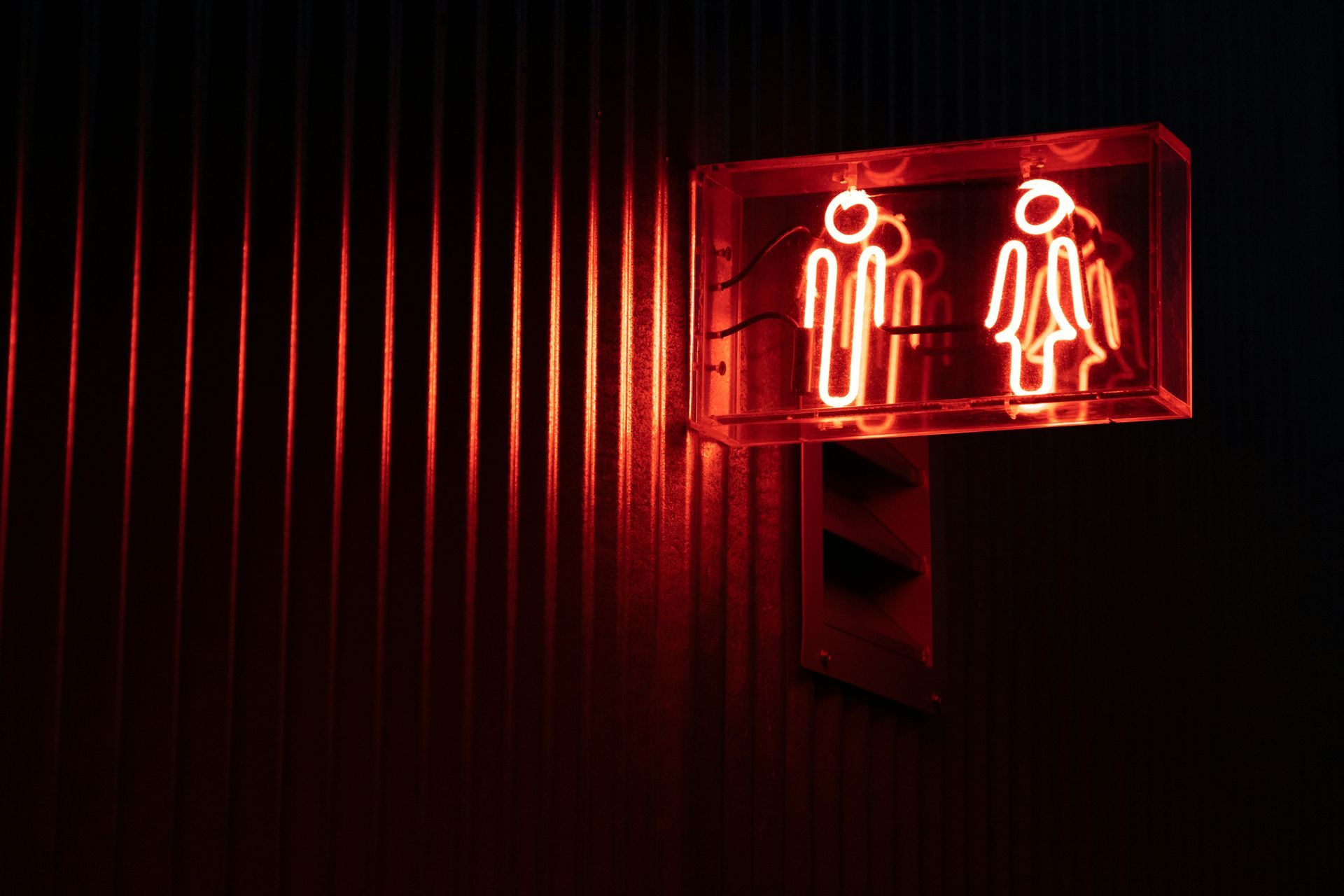Women In Games
Women in Games
Based in the UK, but with a global reach, Women in Games is a not-for-profit organisation with a goal of transforming equity, diversity and belonging in the games industry. It has over 2,200 Individual Ambassadors in more than 70 countries around the world, and operates across:
• Industry
• Education
• Policy
• Community
• Culture
Amiqus is a proud Corporate Ambassador of Women in Games, supporting and amplifying the work of the organisation.
In addition, our Business leader Liz Prince is an Individual Ambassador. She has spoken at many of Women in Games’ events, as well as contributing to the Women in Games Guide: Building A Fair Playing Field.
News & Advice

By Liz Prince
•
March 13, 2025
The UK slips from 17th to 18th in PwC’s Women in Work Index, down from 10th in 2020 - the steepest post-pandemic decline amongst OECD countries - with Iceland, New Zealand and Luxembourg the best performing. Scotland is the UK’s top performing region for the second year in a row. Despite marginal improvements in gender pay gap and high female labour participation, the UK's overall ranking fell due to worsening unemployment and a widening participation gap. The UK fell to second among G7 countries, and now sits behind Canada. At the UK’s current rate of progress, it will take 33 years to close the gender pay gap. Productivity gains through increased female participation from 2011 to 2023, measured by GDP per hour worked, boosted UK GDP on average by 0.3% a year, resulting in a total annual GDP increase of US$7.8bn (£6.2bn). The UK has dropped to its lowest ranking among the 33 OECD countries in over a decade, despite an overall improved score year-on-year, according to PwC’s latest annual Women in Work Index. The report, which looks at progress made towards achieving gender equality at work, showed that in 2023 (the latest result), the UK had a female labour force participation rate of 74.80%, compared to 72.70% and 71.69% in the OECD (the Organisation for Economic Co-Operation and Development) and G7, respectively. The G7 had the weakest performance, with its 2023 participation figure now only just aligning with that of the UK’s in 2014. The UK’s Index Performance In-Depth The UK's performance in the Women in Work Index has varied since its inception in 2011, averaging 16th place over the years since. It peaked at 10th in 2020, in large part due to the COVID-19 furlough scheme. The latest result is the lowest the UK has ranked in over a decade, when it ranked 19th in 2012. For the first time since 2019, the UK is no longer ranked number one among the G7 economies, and is now second behind Canada. The Women in Work Index assesses five indicators that make up the rankings. A deep dive into the UK’s performance against these indicators reveals that: Female Labour Force Participation: The UK's rate saw marginal improvement of less than 0.1%, and therefore remains at 74.8%, although still above the 72.7% OECD average. However, the OECD average increased by 0.7%, indicating stronger progress in other countries. Participation Rate Gap: The UK's female labour force participation rate gap, (the percentage difference between male and female participation rates) widened from 7.1% in 2022 to 7.8% in 2023, dropping the UK's rank from 13th to 19th place – however, this is still better than the OECD average of 8.8%. The UK participation gap has been consistently smaller than the OECD’s since 2011. However trends indicate other countries are beginning to catch up post-pandemic. Wage Gap: The average OECD gender pay gap has bee n lower than the UK every year between 2011 and 2023, except 2020 when factors such as job retention schemes temporarily improved the UK’s comparative position. In 2023, the UK improved its gender pay gap by 1.2% to 13.3%, closing the gap to just 0.2% shy of the OECD average. Nevertheless, the current rate means it will still take 33 years for the gender pay gap to close in the UK. Female Unemployment Rate: The UK's female unemployment rate marginally worsened, standing at 3.5% – 1.8% lower than the OECD average of 5.3%. Full-Time Employment Rate: The UK's female full-time employment rate is 68.9%, ranking 27th out of 33 OECD countries, and is significantly below the OECD average of 78.1%. Regional Inequalities In The UK Half of the UK regions (six out of 12) recorded improvements in their Index score year-on-year. Scotland placed first for the second year running, improving its female participation rate, and its wage gap narrowed significantly from 11.8% in 2022 to 8.3% in 2023. The North East was the most improved, moving up six places to fourth, due to much better female participation, lower unemployment, and wage gap improvements. Five regions experienced a deterioration, most notably in the East and East Midlands. Overall, the gap between the worst and best performing regions has widened, by approximately seven points year-on-year. The contributing factors for this have been the impact of slow regional growth in certain parts of the UK, and varying degrees of both implementation of the ‘Levelling Up’ agenda and proactive efforts of devolved governments in supporting female employment. Alia Qamar, economist at PwC UK, said: “While a fall in rank is never good news, it doesn't depict the whole story; the UK is improving its gender pay disparity, but at a slower pace than other countries. The sluggish progress compared to peers means long term the UK’s performance is consistently only just ahead of the OECD average, whereas other similar countries such as Ireland and Canada have shown impressive improvements in the post-pandemic era. This tepid progress means the ultimate end goal to close the gender pay gap remains a long way off, as on the UK’s current trajectory it will now take over three decades.” Gender Equality Boosts GDP Related PwC research identifies a positive link between female workplace participation and a country’s economic performance. Specific focus was given to analysing the impact of the female participation rate on increased productivity, and the resulting boost to productivity of OECD countries. The findings show a correlation between increased female participation and productivity and GDP growth across OECD countries from 2011 to 2023, leading to an annual increase of USD $0.19 in GDP per hour worked for the average OECD country. This translated into an average GDP boost of USD $4.5bn per OECD country a year. If progress toward full gender equality in the workplace were to continue at the same pace for the next five years, total productivity gains by 2030 could amount to $54.5bn (£43.5bn) in UK GDP, $31.6bn for the average OECD country and $105.5bn for the average G7. Phillippa O’Connor, Chief People Officer at PwC UK, said: "The positive link between gender equality in the workplace and economic growth shows that investing in gender equality isn't just the right thing to do, it's the smart thing to do. The benefits of a larger and more diverse workforce are translating directly into GDP gains, as well as enriching economic diversity, reducing income inequality, and providing a stronger overall skills base. “As our research shows, increasing the workplace participation rates of women has the potential to significantly boost the UK economy and help solve the productivity puzzle – providing a valuable pathway to achieving sustainable growth.” Iceland Tops The Rankings Iceland ranks first on our Index, moving up three places from 2022, followed by New Zealand and Luxembourg. The top five countries remain the same as 2022, although the order in which they rank has changed. Chile, Korea and Mexico ranked at the bottom of the Index. Despite being lowest, all three of these countries improved their overall index value. The Republic of Ireland has seen dramatic progress in all indicators, recording the biggest annual improvement in the OECD. It rose from 12th place in 2022 to 6th place in 2023, with a notable wage gap decrease from 6.7% to 3.7% in 2023. The full Women in Work Index can be found here.

By Liz Prince
•
November 18, 2024
Empower Up, the online EDI platform from award-w inning specialist games recruitment agency Amiqus and #RaiseTheGame – powered by Ukie, is celebrating its first-year anniversary. The website was launched to provide games companies of all sizes with the knowledge, frameworks, guidance and resources they need to establish, improve or grow their Equality, Diversity & Inclusion (EDI) policies, practices and processes, empowering talent across the industry to thrive in inclusive environments. It features a wealth of resources, including the Intro To EDI section, which summarises each Protected Characteristic and information on Under-Represented Groups, along with some specific advice and guidance on each. The Health Check tool enables games companies to benchmark where they are on their individual, current EDI journey. This will then signpost those companies and individuals to specific areas of the website where they can gain relevant advice and actionable steps on how to move forward. Meanwhile, the EDI Journey section provides information and guidance, covering several areas, including: Getting Started Your Workplace Culture Recruitment & Hiring Staff Development & Retention Marketing & Communications Accessibility & Representation Activities & Outreach Legal Requirements Finally, a Resources section offers inspirational Case Studies from studios already doing great work in EDI; a Directory of EDI organisations and initiatives; a Glossary of Terms area; and a Calendar of events, supporting companies as they build vibrant workplaces where every voice is valued. Importantly, Empower Up is constantly evolving, with additional content – covering new initiatives, research, updated legal requirements and more – being published every week. Since launching, over 100 new pieces of content have been added to the platform – from exploring what the new Worker Protection Act means for your business, to an examination of why menopausal women are quitting work; from tips on celebrating Disability Pride Month, to advice on inclusive leadership. In addition, the co-founders of Empower Up – Amiqus’ Business Manager Liz Prince and #RaiseTheGame’s Dom Shaw – have presented Empower Up, and showcased its resources, at a number of industry events over the past 12 months. Amiqus’ Business Manager Liz Prince said: “Empower Up has become an essential tool for games companies seeking to make meaningful strides in Equality, Diversity & Inclusion. With over 100 resources added and a growing membership, we’re thrilled to support companies on their unique EDI journeys.” #RaiseTheGame Manager Dom Shaw offered: “Our mission with Empower Up has always been to provide actionable resources that inspire and enable positive change. In just a year, we’ve seen an incredible response from the industry, and we’re excited to keep pushing forward, expanding our offerings to make EDI more accessible and impactful.”

By Liz Prince
•
September 11, 2024
We were delighted to present Harinder Sangha, Co-Founder & COO of Maverick Games with the G Into Gaming accolade at the recent Gamesindustry.biz Best Places To Work Awards. This award is given each year to a woman who has demonstrated unwavering commitment to promoting diversity, equity, and inclusion within their organisation, but has also been a beacon of hope and inspiration in the wider industry. Harinder has done just that and joins Ann Hurley (Team 17), Tamsin O’Luanaigh (nDreams), Dr Marie-Claire Isaaman (Women in Games), Emma Smith (Hestia Talent) and Gina Jackson OBE (Pitchify) in the G Into Gaming Hall of Fame. The award was presented by G Into Gaming Founder and Amiqus’ Business Manager Liz Prince at the Best Places To Work Awards event, which followed the HR Summit. She said: “If you were here earlier at the HR Summit you may have heard me talking about the troubling anti-EDI trend that we’re witnessing currently - the scaling back of diversity teams and initiatives and the backlash against what some dismissively call 'woke' culture, led by high-profile figures. “But what helps to keep my spirit and determination alive are the incredible individuals around me who share a passion and commitment to EDI. This room is filled with such amazing people, all of whom are being recognised for their tireless efforts in making the games industry a better, more inclusive place. I applaud every one of you and thank you from the bottom of my heart for all you do. “And now, it is my absolute pleasure to present the G Into Gaming Award for 2024. This year's recipient is no stranger to accolades. She has previously won the Best Places to Work Best Boss award and has been instrumental in her former studio's numerous achievements in EDI and employee support. Her contributions have left an indelible mark on the industry. “A year ago, she embarked on a new journey, launching a studio in Leamington Spa. True to her values, she has been building and leading her new team with the same dedication and passion, fostering an environment of inclusivity and excellence. “Beyond her professional achievements, she’s an Ambassador for Special Effect, she’s served on the Women in Games Advisory Board, is a Ukie Board Member, and has been recognised as one of the GI.biz Most Influential Women. “Harinder… your unwavering dedication, your passion, and your genuine care for making the games industry a better place is truly inspiring. You have touched the lives of so many, including mine. It’s an honour to know you and to witness your incredible journey. “So, ladies and gentlemen, please join me in celebrating the remarkable Harinder Sangha of Maverick Games, the recipient of the G Into Gaming Award 2024.” Congratulations to Harinder , and to all the winners of the Best Places To Work Awards 2024. You can watch the ceremony and discover the winners here .

By Liz Prince
•
March 5, 2024
It’s Hashtag International Women’s Day! A time to acknowledge the achievements of women, as well as to reflect on the injustices and persecution facing women and girls in many parts of the world. In games, it’s an opportunity to champion the brilliant women working here – still an under-represented group, but I’m honoured and gladdened to work alongside them. It should also be a day for the games industry to congratulate itself on the strides forward it has taken in gender diversity and inclusion over the past few years…. But the sad truth is, the games industry just hasn’t made enough meaningful progress in this space. In fact, in some instances, it’s getting worse. I had a call recently with someone who works in a UK studio – one of the biggest here – and she told me that she wasn’t really looking forward to International Women’s Day because the bosses were laying on an afternoon tea for the women in the studio and giving them all branded mugs. That, she said, was all well and good – but what many of the women there ACTUALLY want is genuinely flexible working options. That would be a tangible benefit – as it would be for many women with caring responsibilities – making their lives easier, reducing childcare costs (which we all know are astronomical) and potentially keeping them employed at the studio for longer. If the industry is serious about closing the gender gap, why are so many studios insisting staff go back to the office full-time? Why do I hear so often that women asking their leadership teams for flexible, hybrid or remote working are being labelled ‘difficult’, or that they’re asking for ‘special treatment’? That they’re not a ‘team player’… Another recent conversation has also played on my mind … the woman in question is fighting for more support, opportunities, the chance to hire more women into the studio. “But what can I do, what difference can I make, if I’m the only woman there currently? They don’t want to hear me, and they don’t understand what the problem is…” The reason I keep thinking about that conversation is because it must be the situation for so many women in the industry. While we make up just 23-30% (depending on what data you read), there are going to be hundreds of small studios with a lone woman working there. Many studios, of course, will actually be all-male environments. So, what do you do if you’re a woman in that situation? Turn up the volume? Get labelled – again – as ‘difficult’? If the industry is serious about change, the heavy lifting can’t just be left to the women. We need action, board level understanding of what matters to women, we need leaders to listen with empathy and take the actions required. We need meaningful changes that make the workplace truly inclusive – equal pay, clear and unbiased paths to promotion, and yes, flexible working conditions that acknowledge people have lives outside of the studio. We need men to realise that it’s NOT okay for a studio to be all male, to understand why that’s a problem, and to proactively find ways to change. It’s time to look beyond the token gestures. The games industry can either keep pretending that a sprinkle of gender diversity here and there is enough, or it can truly embrace change for the good of all. Some studios are already showing us how it's done, but it's time for everyone else to catch up. The battle for gender diversity in games isn't just about getting more women in the door. It's about changing the landscape from the inside out, making sure everyone has a fair shot at success. It’s about who’s leading the teams, and whose voices are being heard in the boardrooms where decisions are made. It’s also, of course, about addressing the ongoing issues of harassment and abuse. It’s not enough to lean on diversity and inclusion as buzzwords; they need to be woven into the fabric of the company’s culture. It’s time for action, not just awareness, it’s time for change… not cake…

By Liz Prince
•
November 22, 2023
Today (November 22nd) is the day when, because of the gender pay gap, women overall in the UK sto p being paid compared to men. This means: At the current rate of change, the gender pay gap won't close until 2051—28 years from now Women aged 40 and older (those born before 1983) won't see the gender pay gap close before they reach State Pension age This year, to mark Equal Pay Day, the Fawcett Society has released new data and a report which shows that making flexible work the default in high-quality, high-paid jobs is essential if we are to see the gender pay gap close more quickly. The data shows that women are accessing flexible work associated with lower-paid, lower-quality work e.g. part-time, insecure work and zero-hours contracts, in order to balance their caring responsibilities, and that this contributes to the UK's pernicious gender pay gap. The Fawcett Society’s evidence reveals that: 40% of women who aren't currently working said that access to flexible work would mean they could take on more paid work (32% of men who aren't working and 37% of people overall said the same) Women were significantly more likely to report working part-time (27%) compared to men (14%) Men were more likely to report having access to more desirable forms of flexible work —for example, working term time only (outside of an education setting) (21%), working as part of a job share (18%), working a number of set hours flexibly across the year (15%) or working to commissioned outcomes (10%). 77% of women agreed that they would be more likely to apply for a job that advertises flexible working options. Jemima Olchawski, Chief Executive of the Fawcett Society, said: “The Chancellor is delivering the Autumn Statement today, but can he really build a thriving economy without closing the gender pay gap? The fact is, if we want a thriving economy, the gender pay gap must close, and to achieve this, our government must make flexible work the default. “We see time and time again that women feel they have no choice but to accept lower-paid, lower-quality work in exchange for flexibility, and this isn't fair. A need for flexible working arrangements, whether it be due to caring responsibilities, disability, or simply a desire to rebalance work and life, should not mean the end of career progression. Women are being kept in lower-quality jobs due to old-fashioned workplace norms. “Women must be allowed to progress with the flexible working arrangements they require, and men must step up and take on their fair share of caring responsibilities and household tasks. Flexible work must be the norm for both men and women at work. “A day-one right to request flexible working is simply not enough to create the deep cultural change that is needed. Right now, accessing flexible work is a matter of negotiation with your employer. Our report clearly shows that this is a process that favours men and bakes in existing inequality. Women shouldn't be penalised or disadvantaged because they need to work flexibly and they certainly shouldn't be locked out of roles they are qualified and keen to do. Too many women take on less-desirable and less well-paid roles so they can access flexibility and this contributes to the gender pay gap. Flexible work must be made the default for everyone. Employees need a better understanding of the different forms of flexible work open to them across all career paths and employers need to embrace the benefits this will bring to their organisation.” Harriet Harman, Chair of the Fawcett Society, said: “The gender pay gap is closing far too slowly. At the current rate of change, women over 40 will suffer the pay gap until they retire. This is unfair and unjust, and it hurts everyone. A thriving economy relies on the full participation of women, and we are currently locking women out of work they are qualified for and capable of doing. “For too long, women have put up with less fair and less equal working arrangements in exchange for flexibility. We need urgent action to ensure women are allowed to work to their full level of skills and experience. making flexibility the norm will make it easier for women to get the flexibility they need, and also normalise men taking on their fair share of caring responsibilities. We cannot afford to wait.” THE GENDER PAY GAP IN THE UK: EXPLAINED The gender pay gap is the difference between the hourly pay of women and men, as a proportion of men's pay. This year, Government data has indicated a mean gender pay gap of 10.7% for full-time workers, which means Equal Pay Day is on 22nd November 2023. Click here to download the full Fawcett Society report.






